
Episode 353: Spot AI
SPOT AI is a camera system that helps businesses leverage video footage to improve safety, security, and efficiency. By detecting

SPOT AI is a camera system that helps businesses leverage video footage to improve safety, security, and efficiency. By detecting

The New Warehouse welcomes Vivek Singh, Co-Founder of Hopstack, a software platform that automates and optimizes warehouse operations. Vivek founded

Annual partner awards, honoring excellence in delivering the next generation of process manufacturing improvements, announced at Seeq Global Partner Symposium

Scott Walker, VP of Supply Chain Product Management at Powerfleet, joins The New Warehouse podcast to discuss their people-powered IoT

The New Warehouse welcomes fellow podcasters Dan Coll and Ninaad Acharya to the show to discuss their backgrounds and how

Tompkins Solutions, a supply chain consulting and material handling integration firm, today announced that Billy Carter has joined the company as

The New Warehouse podcast is excited to welcome Kristin Toth, the president and COO of Fernish. Fernish is a unique
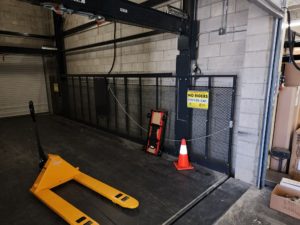
VRCs help maximize existing space, while also costing less than dealership expansion It’s no surprise that constructing a new dealership
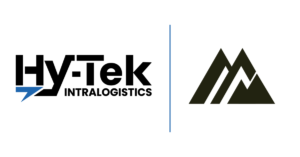
Hy-Tek Holdings (Hy-Tek), a portfolio company of Dunes Point Capital, LP (DPC), has acquired Winchester Industrial Controls LLC (“Winchester”). Winchester,
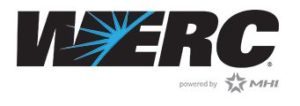
The Warehousing Education & Research Council (WERC) announces the availability of a new warehousing e-learning course, called Distribution Logistics Fundamentals.

The New Warehouse welcomes Tony Ingham, Product Owner at Fulfilld, for our first podcast of 2023. Fulfilld is a leading

PeakLogix announced that Pat Peplowski has joined the company as VP of Business Development. Peplowski is a data-driven leader who
Carlisle Companies Incorporated has announced a commitment to achieve Net-Zero greenhouse gas emissions across its entire value chain by 2050.

This week’s episode of The New Warehouse brings you John O’Kelly, President and Founder of Newcastle Systems. Newcastle Systems provides
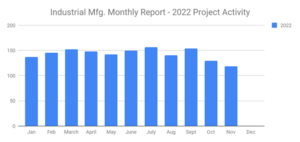
IMI SalesLeads announced the November 2022 results for the newly planned capital project spending report for the Industrial Manufacturing industry.

Nucor Warehouse Systems (NWS) has promoted Reed Reynolds to Commercial Director effective Jan.1, 2023. In this new position, he will

CEO and founder of HomeRoots, Gil Bar-Lev joins this week’s episode of The New Warehouse to discuss offering a business-to-business
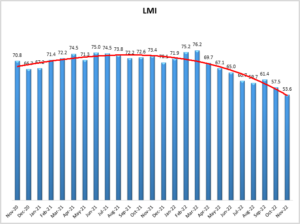
LMI® at 53.6 Growth is INCREASING AT AN INCREASING RATE for: NOTHING Growth is INCREASING AT A DECREASING RATE for:
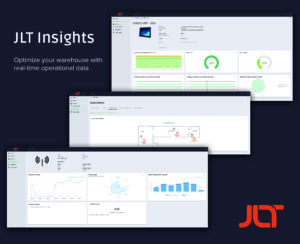
JLT Mobile Computers, a developer of reliable computing solutions for demanding environments, has launched JLT Insights, a new data-driven software dashboard for industries with warehouses.
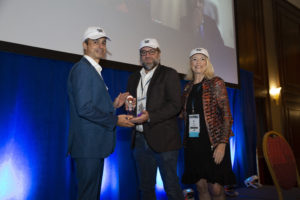
The transformational electronic platform provides speed and security The International Group of P&I Clubs (the Group) added Secro as an